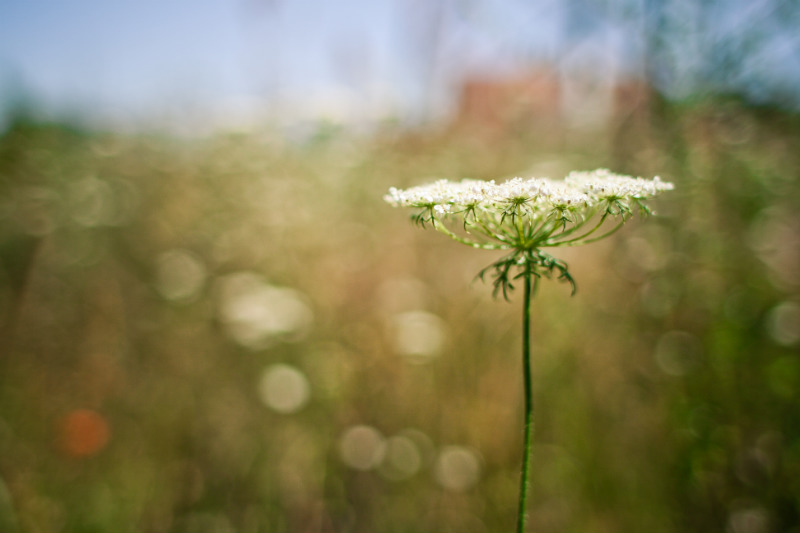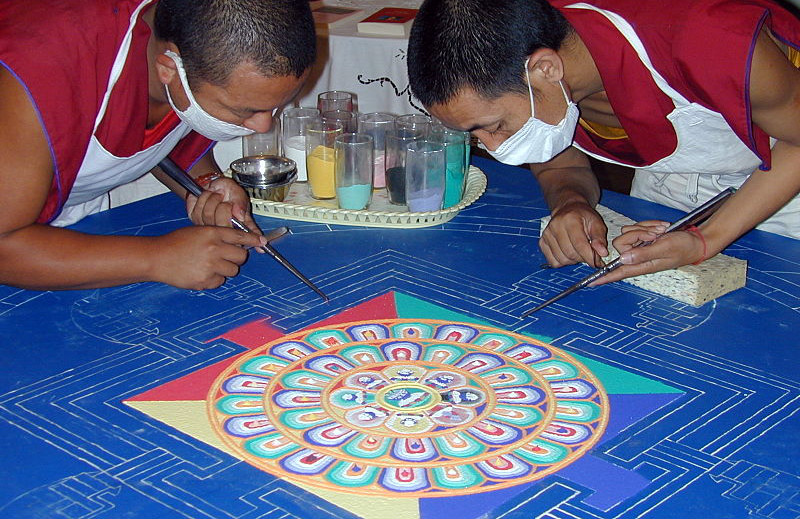 Everyone knows that meditation can reduce stress and calm your mind, but the many ways that meditation enhances creativity is one of its lesser-known benefits. From liberating you from fixed habits of thought to reducing your need for sleep as you work on your latest masterpiece, there are many ways that practicing meditation can improve your painting, writing, singing, dancing, office brainstorming, and other creative endeavors. Here are ten of our favorites.
Everyone knows that meditation can reduce stress and calm your mind, but the many ways that meditation enhances creativity is one of its lesser-known benefits. From liberating you from fixed habits of thought to reducing your need for sleep as you work on your latest masterpiece, there are many ways that practicing meditation can improve your painting, writing, singing, dancing, office brainstorming, and other creative endeavors. Here are ten of our favorites.
1. Meditation Creates Space
The reason meditation is so peaceful is that it gives you some distance from your thoughts and feelings. But any meditator knows that when you open up space within, all kinds of things come bubbling to the surface–including many of your most creative insights. Often you’ll find yourself resisting the urge to leave your meditation in order to go write down the bright idea that just came to mind. Meditation creates space to discover what is ordinarily buried beneath the busyness of your mind.

2. Meditation Makes You More Focused
Even the most successful artist has to contend with a fast-paced world competing for his or her attention on a daily basis, but meditation makes it easier. By teaching you how to focus your attention, meditation allows you to stay connected to your creative vision and inspiration, even when the activity of both the world and your own mind seem to be trying to distract you from it. And in the midst of creative engagement itself, there’s no substitute for bringing deep focus and attention to what you’re doing, as you do it.

3. Meditation Enables You to Embrace More Complexity
Life is complicated, and trying to pursue any creative endeavor often takes a backseat to more seemingly pressing concerns. But because meditation gives you more inner space and focus, it also allows you to embrace more complexity–in life, in art, and in the attempt to fit all of it into your daily schedule. It may seem paradoxical, but when you can handle more chaos, you can also express more simplicity. And that ability can significantly enhance your creative output and expression.

4. Meditation Enhances Your Perception of Beauty
Meditation is the art of awareness, and by cultivating your sensitivity to everything that’s happening within you and in the world around you, your senses become heightened and more subtly refined. You start noticing things that most people don’t, hearing sounds that others unconsciously tune out, and perceiving beauty in pretty much everything–including the most seemingly mundane objects, or in the ordinary actions of your fellow human beings.
This is the secret of Zen, and it has informed and inspired meditators throughout history–from Japanese calligraphers to Steve Jobs, who consciously modeled Apple’s design sensibility on his own Zen practice and philosophy.

5. Meditation Teaches You How to Be Unattached
If you’ve ever seen a Tibetan Buddhist mandala made of sand–bursting with vivid color, intricate detail, religious significance, and sheer creativity–then you probably know what tends to happen with those particular works of art. After a while they sweep them up, forever erasing them from existence. It may seem like a shame to destroy so much hard work, but that’s just part of the practice.
Tibetan sand mandalas exemplify one of the core Buddhist principles–the law of impermanence–which any meditator awakens to, as well. When you meditate, you have to let everything go–sounds, sights, thoughts, feelings–over and over again. But learning to become unattached in this way is also one of the best ways to let your creativity flow, because if an idea isn’t working, you’ll be able to drop it more easily, move on, and be ready for what emerges next. Meditation teaches you how to be flexible and unattached, never holding onto anything so tightly that you obstruct the natural ebb and flow of life.

6. Meditation Awakens You to Depth
Superficiality is everywhere these days–in pop music, in art, on TV, and even in the kinds of conversations that many people have with friends and coworkers on a daily basis. But the practice of meditation awakens you to the importance of depth. When you are calm, still, and awake, doing nothing and holding onto nothing, you will soon sink into a dimension of consciousness that is far deeper than your ordinary state.
As you become more grounded in this meditative depth, it can provide a new foundation for your creative endeavors–giving them more grounding, more weight, and more profundity all around. Awakening to depth can also make you less fickle, so you can stay committed to seeing even the most complex projects all the way through to completion, remaining rooted in your creative vision like a strong tree that can’t be moved.

7. Meditation Gives You More Energy
One benefit of meditation that doesn’t get nearly enough attention is its remarkable ability to give you energy in ways that coffee, Red Bull, and even good old-fashioned sleep do not. In fact, once you reach the point where you can meditate for more than an hour at a time, you’ll begin to discover that the more you meditate, the less sleep you require. For creative individuals, this is extremely good news–because staying up all hours, night after night, compelled to express your creative inspiration in every spare moment you can find, can often lead to exhaustion and burnout.
But if you meditate consistently and deeply, you can plug directly into a mysterious reserve of energy that can bring the moments of rest that your body and mind require, while also fueling you in ways that unconscious sleep does not. Of course, you’ll have to sleep sometime, but adding meditation to the mix can give you more hours in the day for your creative pursuits, while also allowing you to reap all the other benefits detailed in this article.
![]()
8. Meditation Helps You to Work Well with Others
Because the practice of meditation reduces stress and instills you with an ever-growing sense of inner peace, you’ll find that it also makes you an easier person to be around. People will enjoy being in your presence without quite knowing why. And you, in turn, will find it easier to look beyond the emotional flare-ups and interpersonal intensities that often obstruct our relationships with others.
When it comes to creative collaboration, clearing and unifying the space between ourselves and others can yield powerful results, and this may be one of the single most important ways that meditation can make you more creative. When egoic self-interest is no longer taking center stage–in art, in work, or in life–then what human beings can creatively accomplish together becomes potentially unlimited, extending far beyond what a single individual could ever achieve alone. But it often takes an individual to get the collaborative ball rolling.

9. Meditation Connects You Directly to the Creative Impulse
Everyone experiences the creative impulse–whether it’s felt as the sudden inspiration to learn a new skill or as a longstanding desire to create an artistic masterpiece. So what would happen if you looked directly at the experience of the creative impulse itself, rather than at the various things it compels you to do, to become, and to create? And what would happen if you realized that the creative impulse isn’t just an experience that you have now and then, but that, instead, it’s one of the deepest and most constant qualities of your own true self?
Through meditation, you can awaken to the ultimate source of creativity–the same creative force that gave rise to the stars, to the trees, and to the Mona Lisa. And by doing so, you can learn to align your own life with that deeply fulfilling, often ecstatic, and eternally life-positive drive.

10. Meditation Liberates Your Unique Self-Expression
Finally, in case you aren’t yet convinced that meditation could be a good aid to your creative pursuits, there’s also the power of spiritual enlightenment to consider. The most serious meditators throughout history have often held enlightenment, or spiritual liberation, as the goal of their practice, which is said to be the highest spiritual attainment possible for a human being. But even a little bit of meditation can give you a taste of what the concept of spiritual liberation means, as you learn to gain ever more freedom from your mind, from the world, and from time.
When you start to realize that you are not merely your mind, a whole new world of possibility opens up to you. You begin to see how much of your life is spent in relative unconsciousness, as you go through the motions robot-style, acting on autopilot based on your own mental programming (or habits) as well as the programming that your particular culture has been installing in your brain since you were born. For creative individuals, it’s not that different. Unless you’ve been cultivating freedom from your own mind as well as the minds of others, you’re undoubtedly going to be acting in preprogrammed, unoriginal ways, rehashing what has been done before or contributing in ways that are limited by fixed ideas or by your cultural status quo.
To become a true creative individual, to manifest the creative impulse uninhibitedly through your unique self-expression in a way that only you can, you need to gain at least some degree of spiritual liberation. And how do you achieve that?
Well, by meditating, of course.
by Thomas Dixon



Einstein made many of his insights while sailing a small boat, it would cause him to enter an altered state of consciousness… a meditative state
That’s brilliant. Thanks for sharing that Joe. Makes sense to me.